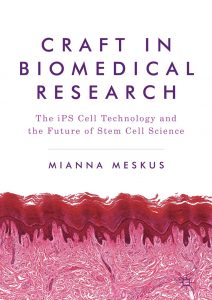We are happy to continue our seminar series in 2021 with a talk by Heta Tarkkala:
27 May, 14:15–15:45 (EEST)
Heta Tarkkala, PhD
Postdoctoral researcher – University of Helsinki
Website: https://researchportal.helsinki.fi/en/persons/heta-tarkkala
Visual arts in the presentation of research results in qualitative social science – reflections on collaboration with an illustrator
In a collaborative project “Faces of Masking” we have the aim to explore alternative formats of presenting scientific results by using visual arts. As an empirical case, we pay attention to one of the most striking visual features of the ongoing Covid-19 pandemic – the facemasks. As visual symbols for the pandemic, masks have also come to play a part in many public discussions. We have decided to explore these ‘mask stories’ published in newspapers and social media.
Our approach to the re-structuring of our social world during the pandemic is a combination of social scientific research and professional illustration. This means we have explored alternative forms of gaining and presenting scientific results by using visual arts. And we have collaborated with the artist already during the analytical process. As a result of this, sketches and illustrations, questions and clarifications have been generated as the analysis has moved forward.
In this presentation I will discuss first, the collaboration with visual artist as well as the input of this collaboration for the analytical process. Second, I will address different illustrations, figures and visualisations in the reporting of scientific research results more generally. This is done in order to think about the visualised scientific results and representations, and their tradition, role, and potential more generally, and to contextualise our own empirical case.
Short bio
Heta Tarkkala is a post doctoral researcher at the University of Helsinki, where she also defended her thesis in 2019. She is currently working in a project called Datalit, which is an interdisciplinary collaboration between social science, law, and computer science that develops understandable and trustworthy practices for utilizing Finnish health, social, and welfare data.
Heta’s background is in sociology and science and technology studies, and in her work she has concentrated on the issues related to knowledge production in biomedicine, biobanks, utilization of health data as well as the becoming of data driven society. She is also collaborating with researchers Annerose Böhrer, Marie-Kristin Döbler and visual artist Susi Vetter from Germany in a mini-project “Faces of masking” that aims to explore alternative forms of presenting social scientific research results in collaboration with visual artist. It is this project today’s presentation is based on.
Join the seminar via Zoom:
Jose Canada is inviting you to a scheduled Zoom meeting.
Topic: STS Helsinki Seminar – Heta Tarkkala
Time: May 27, 2021 02:00 PM Helsinki
Join Zoom Meeting
https://helsinki.zoom.us/j/69039551167?pwd=WDFrNFBNbEJ0b3YvZTJ6c2RvazFvUT09
Meeting ID: 690 3955 1167
Passcode: 633506
Join by SIP
69039551167@109.105.112.236
69039551167@109.105.112.235
Join by H.323
109.105.112.236
109.105.112.235
Meeting ID: 690 3955 1167
Passcode: 633506
 The STS Helsinki blog is happy to present and promote the recent publication of the book of one of our members, Associate Professor Mianna Meskus.
The STS Helsinki blog is happy to present and promote the recent publication of the book of one of our members, Associate Professor Mianna Meskus.